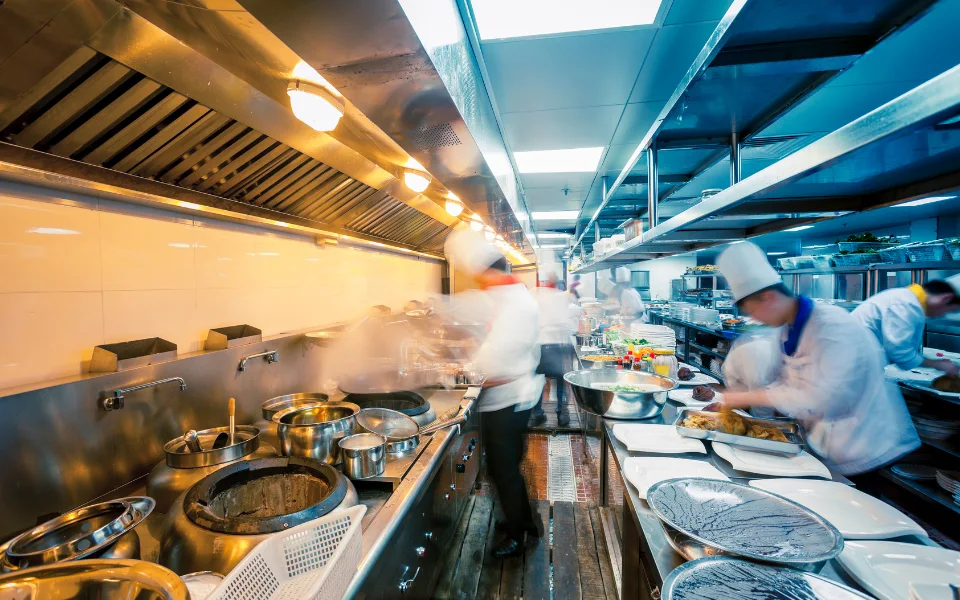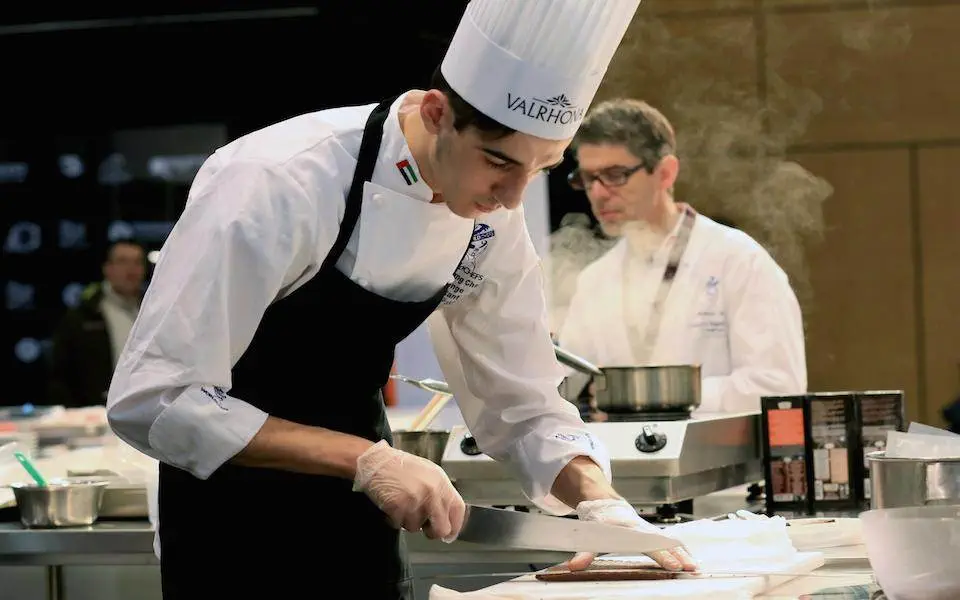Chefs, Commercial Kitchens, and Stress: Could Socio-Demographic Factors such as Personality, Age, and Gender Influence the Stress Level of a Chef?
By Wonda Grobbelaar (2023)
Background
Most chefs would agree that life as a chef is not always easy. Chefs often work under very stressful conditions due to different reasons which could affect their personal life. Some of the reasons include a stressful working environment (higher consumer expectations) and long hours of work with no proper rest breaks, low pay, and no work-life balance. Contributing to these stress factors is the militaristic environment many commercial kitchens still operate in today. Created by Escoffier with his military background in the 1800s, the norm in commercial kitchens is to operate in an environment where there is a clear identification of roles and duties (1). In principle, this militaristic approach could be beneficial for commercial kitchens to create maximum value by streamlining the processes and increasing efficiency. However, the problem with this approach is that the hierarchy is not necessarily designed to make working in a kitchen easier, or more supportive for chefs (2). Previous research studies have proven that a militaristic nature of systems has been linked to higher stress levels among kitchen staff, which increased the health risks associated with the profession.
Before we could identify the levels of stress in commercial kitchens, it is important to understand what the word “stress” and “work stress” means. The word “stress” could be defined as a state of worry caused by a difficult situation and is a natural human response to everyday pressures that everyone experiences from time to time (World Health Organisation (WHO), 2021). However, not all stress is bad for you as it prompts us to address challenges and threats that we perceived as stressful in our lives. This could contribute to higher performance and motivates us to reach our goals and ultimately makes us smarter, and healthier people.
The problem with stress is when it starts affecting the health of a person. People can no longer cope with their work problems or environment. Therefore, “work or job stress”, can be defined as the harmful, physical, and emotional responses that occur when the requirements of the job do not match the capabilities or needs such as the physical or mental well-being of a person (Seňová & Antošová, 2014; Bhui, et al., 2016, Ghani, et al.,2022). Having every day a stressful day at work could lead to chronic work stress which will affect all systems of the body including the musculoskeletal, respiratory, cardiovascular, endocrine, gastrointestinal, male, and female reproductive system, and nervous systems (Baum, et al., 1999; American Psychology Association, 2022, Lu, et al., 2022). Unfortunately, chronic stress will not only affect the employee in many ways but also negatively impact organizations. Organizations will ultimately incur losses due to worker dissatisfaction or absenteeism and high turnover of employees. It could also lead to poor sleep quality among employees which could ultimately influence production efficiency and quality of work (Lu, et al., 2022; Tseng, et al., 2022).
How was the study conducted?
The aim of my research study is to find out the role of socio-demographic factors such as age, gender, and personality on the stress levels of a chef and what could be done to improve the stress levels that are causing many health problems among those around the globe.
First, an informal survey was sent out on social media to determine what chefs today working in commercial kitchens saw as potential stressors. A poll consisting of one question was created:” As a chef, what do you see as the highest stress factor today in the kitchen where you work”. Six possible answers were given.
In Figure 1, the response to the poll is illustrated in the form of a graph.
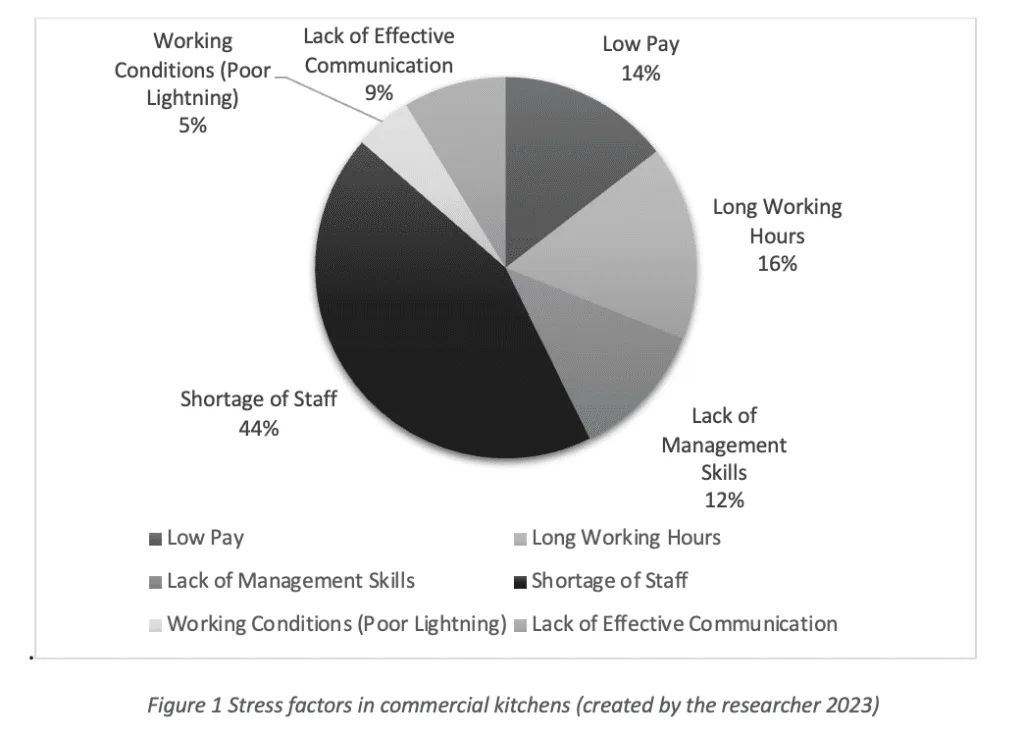
What was very interesting about these results is that it seems the highest stressor has changed over the past few years. In earlier years, the highest stressor was long working hours, however, according to the data collected earlier this year, this view has changed according to the poll. Today the highest stressor in commercial kitchens is a staff shortage (44%) followed by long working hours at 16%. It would be interesting to conduct further studies related to this preliminary finding to find out if this view is worldwide, as the poll was conducted in the United Kingdom.
With the help of the World Association of Chefs’ Societies (Worldchefs) a podcast related to my research study including questionnaires was shared with the chef’s community including two certified questionnaires to measure the stress and to determine the personality of chefs. The link also included questions related to socio-demographic factors such as nationality, age, and gender. However, for the purpose of this research study, the nationality of a chef is not included in the findings. Any chef that was willing to participate could do so. More than 120 chefs responded to the podcast. Some of the recorded data could not be used due to incomplete questionnaires and some chefs answered the questions in their native language. Data were analyzed with a statistical software program.
Findings
After an analysis, the following findings were recorded.
Age & Gender
The average age of chefs that participated in this research study was 43 years old. The youngest chef was 19 years old and the oldest chef that participated in this research study was 62 years old. According to the findings related to stress and age. as the age of the chefs increases, their stress levels increase.
In Figure 2, the results of age and stress are illustrated by an Interval Plot.
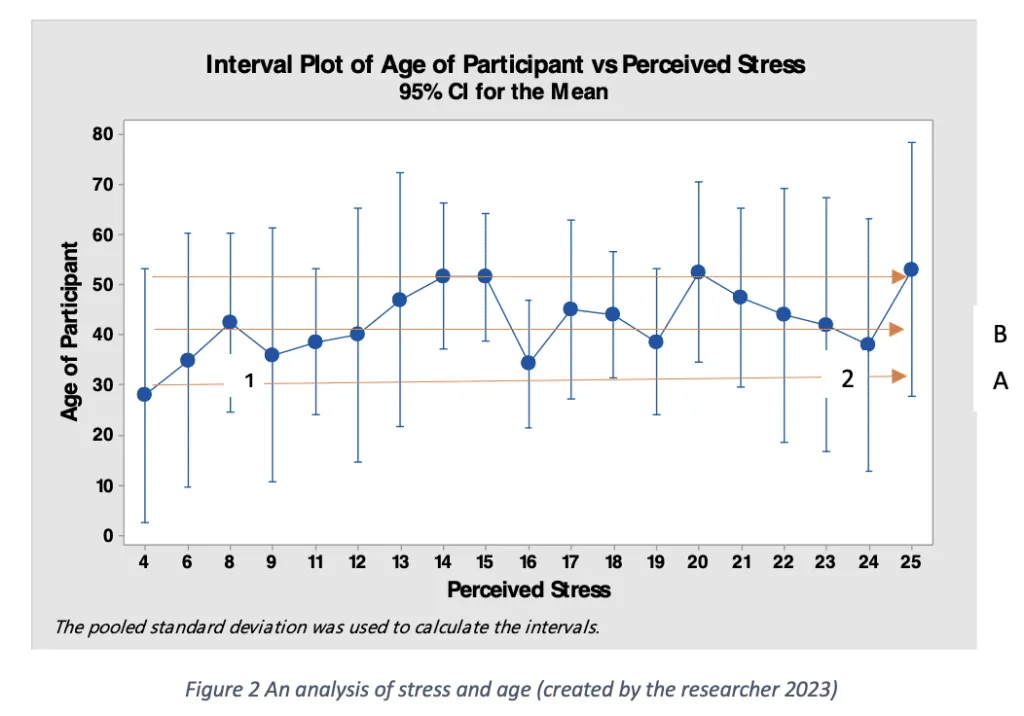
Line A clearly shows that chefs in their early 30 have very low-stress levels. In their late 30’s early 40’s the stress levels start to increase significantly, peaking at 50+ years. What was interesting is that some chefs in their late 30’s, and early ’40s are less stressed than their counterparts of the same age (See no.1 & 2). This could be related to other socio-demographic factors such as age, education, and cultural background.
The findings related to stress and gender indicated that males are more stressed than their female counterparts. The limitation of the finding related to gender is that only 25% of the data were collected from female chefs.
Before I share the results of the personality traits and stress among the chef community, I thought that I should define what the meaning of each personality trait according to the Big Five Traits Test (BFI-44).
In Table 1, a summary of the characteristics of each personality trait is described.
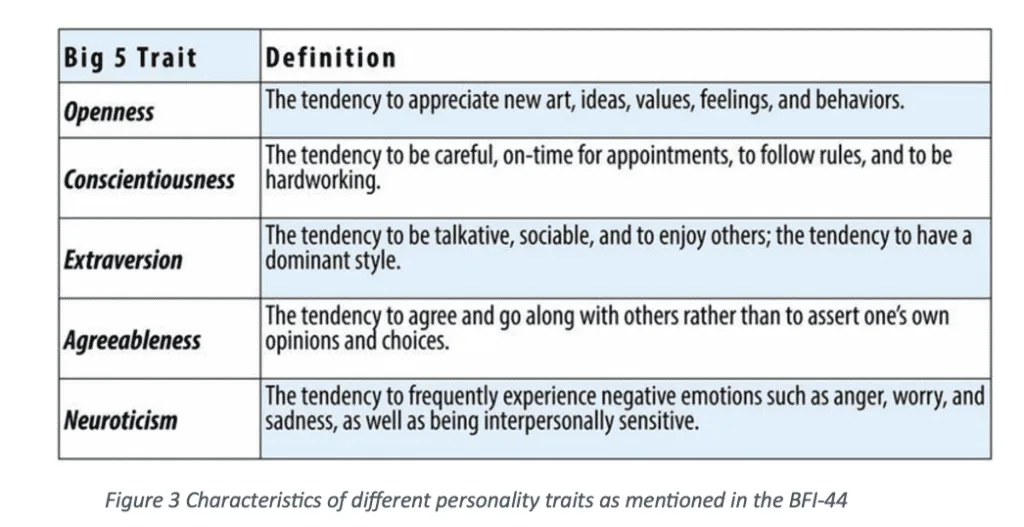
The findings of personality traits and the effect on their stress included the following: No chefs according to the data collected had a strong extraversion personality trait. It means in simple terms that no chefs were extroverts. The number of chefs that scored high in the personality traits of Agreeableness and Conscientiousness were the same. The strongest personality trait among chefs was Openness and the personality trait that was least common among chefs was Neuroticism.
Conclusion and Further Research Studies
According to data collected before and during COVID-19, most research studies related to stress and chefs indicated that long working hours were a high stressor, however after the pandemic, it seems that a staff shortage was identified as the highest stressor in commercial kitchens. Although more research should be conducted on this observation, it could be an indication that either fewer people are joining the culinary world, or more people have left the industry due to the long working hours and many other factors mentioned above. From this research study, we could also conclude that the level of stress is not only determined by the working environment of a chef but also by socio-demographic factors such as age, gender, and personality. The findings indicated that older male chefs are more stressed than their female counterparts of the same age and that younger chefs are less stressed. Another interesting observation was the lack of chefs that scored high in the extraversion personality (extroverts) in commercial kitchens. At this stage it is not evident if these personality type(extroverts) simply do not apply to work as chefs, or if could it be that a chef’s personality change with time working in a commercial kitchen which could be very stressful at times. To clarify some observations, further research studies will be conducted to clarify these observations mentioned above.
Recommendations
To reduce stress in commercial kitchens the following steps could be taken to reduce the stress levels in commercial kitchens:
The selection criteria required to hire a chef could be improved. When chefs are recruited for different positions in commercial kitchens, attention should not only be given to the skillset and education level but also to the socio-demographic factors of the person such as age, gender, and personality before hiring a person for a certain position. The HR team could evaluate the candidate’s personality traits by using a simple personality traits test such as the BFI-44 to establish which position would be most suitable. As mentioned above, the Big Five Personality Traits 44 items (BFI -44) consist of 44 questions that will take around 10 minutes to complete, however a “small price to pay to secure the right hire”.
Another stress reducer could be allowing your staff more creativity in commercial kitchens. Previous research studies found that chefs showed decreased stress levels in response to increases in the variety of challenges of their work, such as the opportunity to create new menu items (Murray-Gibbons & Gibbons, 2007)
The stress levels of chefs could be reduced by learning additional skills. One such example is Emotional Intelligence, which contributes not only to a less stressful working environment but teaches them how to manage stress in different ways. Other training sessions that might be suitable for staff members could include leadership and management skills, complex problem-solving, and critical thinking skills.
Lastly, ensure that your staff has a proper place to recoup during their busy working schedule. No chef deserves to have lunch sitting on a container in the storeroom or even worse, no place at all to eat lunch.
Thank you to all the chefs for your valuable contributions to the research study related to chefs and stress in April/May 2023. This research study forms a part of a larger research study related to chefs, stress, and robotics. To find answers to the observation made during the data analysis, more data will have to be collected to find answers to these observations/questions. For example, more female chefs should be included as well as interviews should be conducted to find out if there are any other possible factors that could contribute to the stress factors of chefs. If you are willing to be interviewed or would like to find out more about this research study, please contact me via my email ID wonda.grobbelaar@gmail.com.

